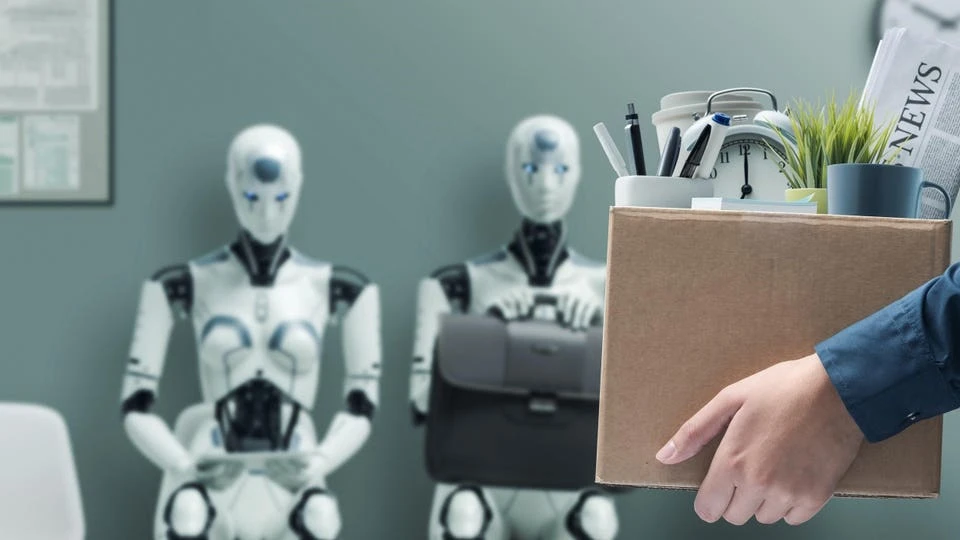How Generative AI Will Change All Of Our Jobs In 2024
As we step into 2024, the landscape of work is undergoing a transformation unlike any before, primarily driven by the advancements in Generative Artificial Intelligence (AI).
The Rise Of Creative Machines
Generative AI, at its core, involves algorithms that can generate new, original content – from text to images, music, and beyond. As these systems become more sophisticated, they are beginning to shoulder tasks that were once considered the exclusive domain of human creativity.
In sectors like marketing, graphic design, and content creation, AI tools are enabling professionals to generate innovative ideas and prototypes at unprecedented speeds.
This doesn’t imply a replacement of human creativity but rather augments it, allowing for a blend of human ingenuity and algorithmic efficiency.
Enhanced Decision-Making And Strategic Planning
Another significant impact of generative AI is in the realm of decision-making and strategic planning. AI systems can analyze vast datasets, recognize patterns, and predict outcomes, thereby offering insights that can be invaluable for business strategy.
Executives and managers across various sectors will find themselves leveraging AI to make more informed decisions. From predicting market trends to optimizing supply chains, the role of AI in strategic planning is set to deepen in 2024.
The Evolution Of Customer Service
Generative AI is also reshaping customer service. AI-driven chatbots and virtual assistants, capable of understanding and responding to complex queries, are becoming more common. They provide a level of interaction that’s increasingly indistinguishable from human customer service representatives.
This technology not only improves the efficiency and availability of customer support but also allows human employees to focus on more complex and nuanced aspects of customer relations.
Transforming Education And Training
In the field of education and professional training, generative AI is a game-changer. It can personalize learning experiences, adapt to individual learning styles, and provide resources that are constantly updated with the latest information.
For professionals, this means continuous learning and skill development will become more accessible and tailored to individual needs. The ability to keep pace with rapid technological changes is crucial, and AI aids in this adaptive learning process.
Reinventing Research And Development
Generative AI‘s ability to simulate and model scenarios is revolutionizing research and development across industries. From pharmaceuticals to automotive design, AI algorithms can predict outcomes, model scenarios, and generate innovative solutions to complex problems.
This capability accelerates the pace of innovation, reducing the time and cost involved in developing new products and services.
The Emergence Of New Roles And Skills
As generative AI takes over certain tasks, it simultaneously creates new job roles and skill requirements. AI ethicists, data curators, and algorithm trainers are just a few examples of emerging professions.
Professionals will need to adapt by acquiring new skills, such as AI literacy, data analysis, and an understanding of how to work alongside AI systems. The workforce of 2024 will be defined by its ability to coexist and collaborate with intelligent machines.
The Challenge of Ethical and Responsible AI Use
Important aspects of the rise of generative AI are the ethical considerations and potential biases inherent in AI algorithms. Ensuring that AI systems are fair, transparent, and responsible is a task that will increasingly fall on the shoulders of all professionals, not just those in tech-related fields.
This includes understanding the sources of data used to train AI, the potential biases in these datasets, and the ethical implications of AI-generated decisions and content.
The Shifting Landscape Of Remote And Hybrid Work
Generative AI is also influencing the way we work, particularly in remote and hybrid work environments. AI tools are facilitating smoother communication, project management, and collaboration among geographically dispersed teams.
This is leading to a more connected and efficient global workforce, where physical location becomes less of a barrier to effective collaboration.
The Impact On Traditional Industries
Even traditional industries like agriculture, manufacturing, and construction are not immune to the changes brought about by generative AI. From optimizing crop yields to designing smarter buildings and manufacturing processes, AI is introducing new efficiencies and capabilities.
Professionals in these sectors will increasingly rely on AI for operational decisions, leading to a fusion of digital and physical work processes.
Preparing For The Future
As we embrace the changes brought about by generative AI in 2024, it’s crucial for professionals across all sectors to stay informed and agile. Understanding the capabilities and limitations of AI, continuously updating skills, and embracing a mindset of lifelong learning are key to thriving in this new era.
The transformative power of generative AI is undeniable. As we navigate through 2024 and beyond, it’s clear that these technologies will not just change how we work; they will redefine what work means in the 21st century.
By embracing these changes and preparing for them, we can ensure that the future of work is not only more efficient and innovative but also more inclusive and human-centric.
Source: forbes








No Comments